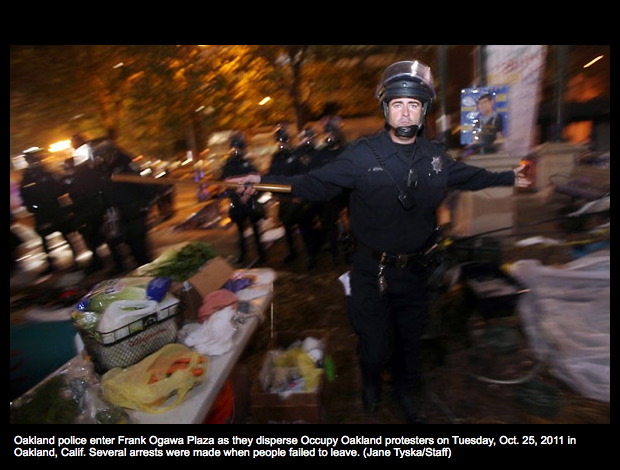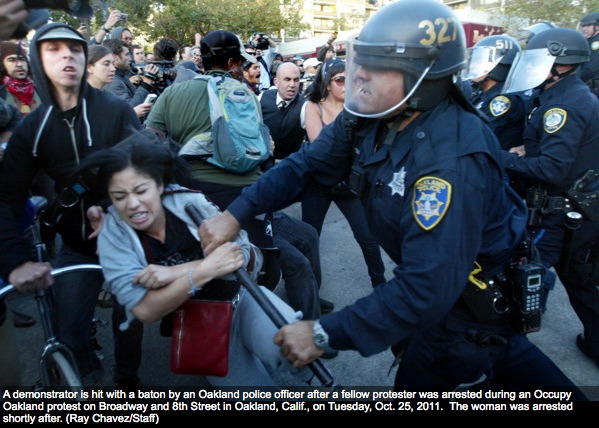Notes
(De-)Occupy Oakland: Role of the Cameras and Comparison to Arab Spring

In Oakland, consistent with most Occupy cities and encampments, there are the most basic issues in play on the ground — free speech and right-to-assemble versus public health and safety, for example — pitting protesters (and, increasingly, the homeless jumbled in) against city officials and law enforcement.
At The Bag, however, what we’re primarily interested in is how the movement is expressing itself in social and commercial media, especially when all parties are hyper-aware of the cameras all around, ensuring that the movement and every engagement plays out on stage, the documenting of actions and the visual representation of those actions a very present and often mediating factor in in the actions themselves. If the “reality = media and media = reality” equation which found such robust expression last January during the Egypt uprising, what we’re seeing is the same dynamic playing out here-and-now between America’s physical and digital public square(s).
I encourage you to page through the 92 photos the Oakland Tribune posted of the decimation of the Occupy Oakland site on Tuesday. The complexities and concerns regarding the maintenance of these camps notwithstanding, I don’t thing the police understand the “perceptual violence” doled out by ripping those tents apart. Given the omnipresence and engagement of the cameras, however, I wanted to highlight this photos in particular, simultaneously illustrating: a.) the badness going down, and b.) the recognition of the witnessing by the actors.
If it looks like the cop is pleading a case, that’s how much “the revolution will be interactive” … and we’re all right there.


Reactions
Comments Powered by Disqus